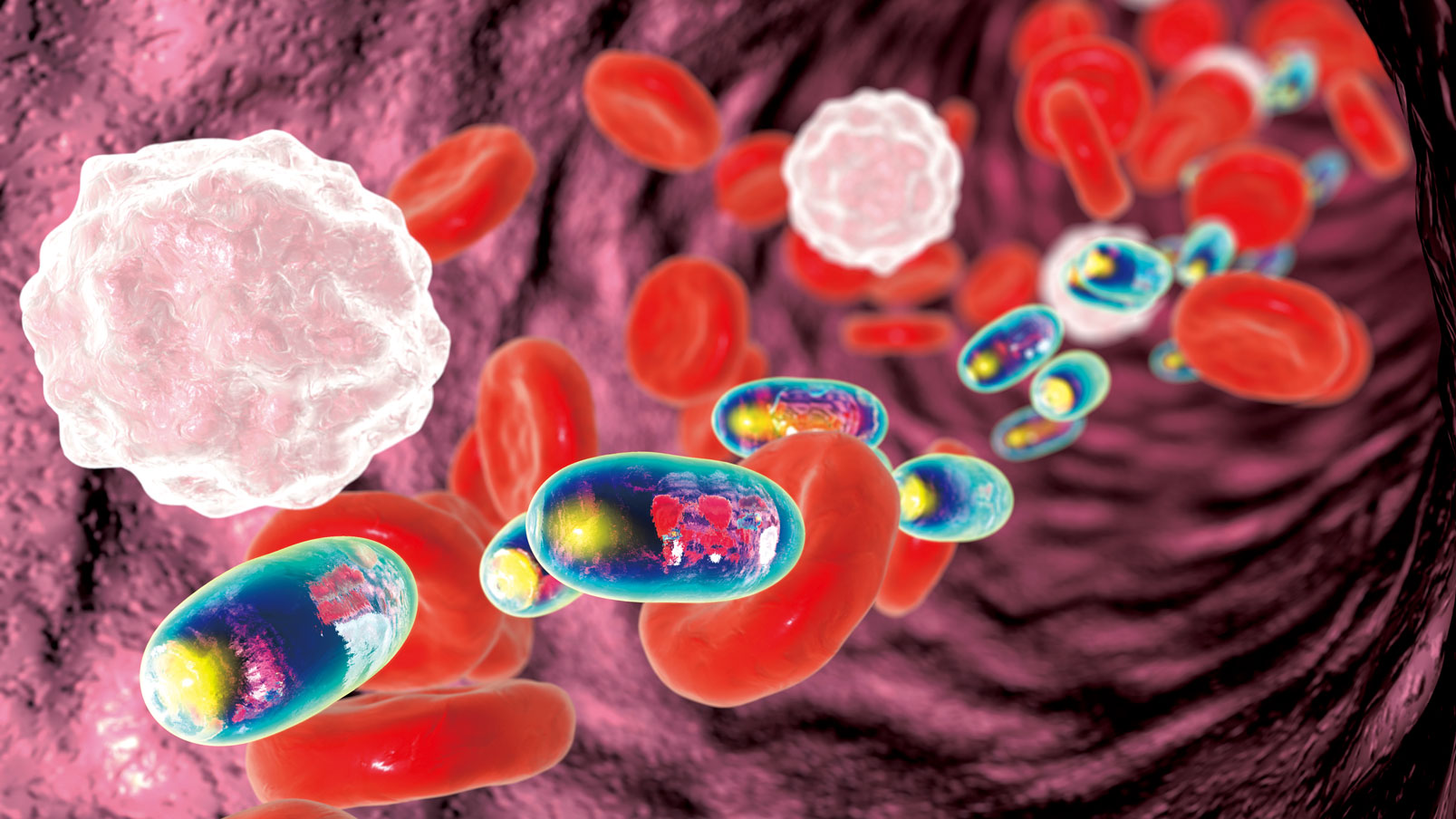LABORATORY OF DDS DESIGN AND DRUG DISPOSITION
BIG HOPES FOR NANOTECHNOLOGY BASED DRUG DELIVERY SYSTEMS
-Drug delivery systems that nanocarriers could enhance the effectiveness of therapies ranging from genetics-based cancer treatments Alzheimer's medicines.
Research Keywords: Drug Delivery, Nanobio, Vaccine
 © iStock.com/Dr_Microbe
© iStock.com/Dr_MicrobeDrug delivery systems that nanocarriers could enhance the effectiveness of therapies ranging from genetics-based cancer treatments to Alzheimer’s medicines.
Personalised medicine — tailoring medical treatments to individual needs — may no longer be far-off.
Developments in nanocarriers have progressed rapidly, promising targeted delivery and release of nucleic acid-based drugs (NABDs), an emerging class of therapeutics designed to target diseases at the genetic level.
A BREAKTHROUGH MOLECULE
In 2013, Akita’s group reported on SS-cleavable Proton-Activated Lipid-like Material (ssPalm), a molecule designed and tested over five years that showed promise for drug delivery.
The molecule itself consists of two main components: One, tertiary amines, are activated in response to an acidic environment, such as the endosome compartment inside the cells of plants and animals. These activated amines enable membrane destabilisation. The other, a disulfide bond (SS) that can be cleaved in a reducing environment such as in the cytoplasmic material inside cells, triggers the release of NABDs in specific cells.
In proof-of-concept studies in mice in 2016, the researchers showed that lipid-based nanoparticles, formed using ssPalm, enabled efficient delivery to the liver of a genetic treatment that uses small interfering RNA. They have since gone on to develop second-generation ssPalm, which uses Vitamin E as a waterproofing scaffold (ssPalmE).
One of the biggest challenges for cancer therapeutics researchers, Akita explains, will be “to develop DNA- and RNA-based vaccines that could target unique genetic changes in individual cancers.”
The hope is that the versatility of ssPalm could help maximise drug efficacy while reducing side effects. For example, in mouse studies performed in 2018, Akita’s group demonstrated that a plasmid DNA- encapsulating lipid nanoparticle (ssPalmE -LNP) induced anti-tumour effects. They also showed that ssPalmE-LNP enhanced the therapeutic effect of an antibody used to combat immune system supressing programmed cell death protein 1 (PD-1), raising hopes for combination therapies to combat cancer.
Brain disorder treatments also stand to benefit from nanocarriers. Recent studies suggest that using ssPalm as an alternative to viruses that deliver genetic material could improve treatments.
In experiments with Hokkaido University in 2018, Akita’s team used ssPalm in the delivery of messenger RNA (mRNA) to neurons and astrocytes — star-shaped cells found in the brain and spinal cord increasingly implicated in neurodevelopment and disease.
By surpassing the limitations of other forms of delivery (such as DNA-based artificial gene carriers), mRNA therapeutics could be used to treat many conditions, including Alzheimer’s, Parkinson’s, Huntington’s disease and other neurological disorders.
“Our strengths at the Faculty of Pharmaceutical Science include our expertise in characterizing physicochemical properties, and evaluation of pharmacokinetics and pharmacodynamics, as well as safety,” Akita explains. These skills could potentially contribute to a wide range of fields he says, including immunology and cancer research.
“We need to keep our eyes open to societal needs,” Akita adds. “Until now, we have been concentrating on materials science. We have only just begun to enter the arena of nucleic acid-based therapeutics. I believe innovations arise when you can look beyond your own particular filed, and apply original technologies in unexpected ways.”
(CHIBA RESEARCH 2020)Members
Principal Investigator
| Name | Title, Affiliation | Research Themes |
|---|---|---|
| AKITA Hidetaka | Professor, Graduate School of Pharmaceutical Science | Pharmaceutics, Drug Delivery System |
Co-Investigatior
| Name | Title, Affiliation | Research Themes |
|---|---|---|
| HISAKA Akihiro | Professor, Graduate School of Pharmaceutical Science | Clinical Pharmacology, Pharmacometrics |
| MORIBE Kunikazu | Professor, Graduate School of Pharmaceutical Science | Pharmaceutics, Pharmaceutical Technology |
| ITO Kousei | Professor, Graduate School of Pharmaceutical Science | Biopharmaceutics, Toxicology |
| MURATA Takeshi | Professor, Graduate School of Science | Membrane Protein Chemistry |
| OGASAWARA Satoshi | Specially Appointed Associate Professor, IGPR/Graduate School of Science | Antibody Engineering, Biochemistry |
| ANZAI Naohiko | Professor, Graduate School of Medicine | Physiology, Pharmacology, Toxicology, Clinical Pharmacology |
| TANAKA Hiroki | Specially Appointed Assistant Professor, Graduate School of Pharmaceutical Science | Pharmaceutics |
| HIGASHI Kenjirou | Associate Professor, Graduate School of Pharmaceutical Science | Pharmaceutics, Pharmaceutical Technology |
| UEDA Keisuke | Assistant Professor, Graduate School of Pharmaceutical Science | Pharmaceutics, Pharmaceutical Technology |
| AOKI Shigeki | Associate Professor, Graduate School of Pharmaceutical Science | Molecular and Cellular Biology, Immunotoxicology |
| HATAKEYAMA Hiroto | Associate Professor, Graduate School of Pharmaceutical Science | Pharmacokinetics, Drug Delivery |
| SATO Hiromi | Associate Professor, Graduate School of Pharmaceutical Science | Clinical Pharmacology, Pharmacology |
| SAKURAI Yu | Specially Appointed Assistant Professor, IGPR/Graduate School of Medicine | Pharmaceutics, Synthetic Chemistry |
